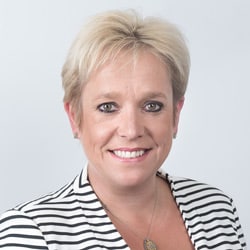
What does changing behaviour really mean? We all think we can change, but how arrogant to suggest we can change the behaviours of others. We can certainly create an environment for change, and offer compelling motivations for change, but unless we truly believe that change is in our best interests, it’s unlikely to be sustained.
So what are the steps in motivating change and more importantly, how do we increase the likelihood of sustained behaviour change?
Behaviours are the result of a complex blend of what we believe and what’s important to us. Beliefs support us, shape us and protect us, so any type of behaviour change initiative needs to be sensitive to the beliefs at play.
Yet why are beliefs so important in healthcare communications and training? Surely providing new evidence, a great case study, a social media initiative or a blended mix of all these will create change?
Beliefs might not always support us in the most effective way possible, as is evident by the success of the slimming industry, every self-help group out there and the utility of belief-led behaviour change initiatives such as adherence programmes.
Understanding the power of language and using it to target specific beliefs can facilitate significant changes in behaviour – with the added benefit of shifting a limiting belief in a respectful, congruent and healthy way, and in an industry focused on patient health, this can only be a good thing.
Beliefs need to be acknowledged and respected before change can take place
Beliefs need to be acknowledged and respected before change can take place. Think of something you truly believe in and why that belief is so important to you. Then someone suggests you change to ‘their’ way of thinking. How do you feel?
For a belief to shift it needs to satisfy all the criteria that the previous belief had so it doesn’t create a void (and therefore a shift back to the previous belief and pertaining behaviour). New beliefs often need to be ‘tested and tried out’ before they will stick. Continual reinforcement convinces our mind it was the right choice to make.
Listening for beliefs, understanding them and utilising enhanced language skills through communications programmes and training initiatives can turn the tide on change to effect greater and sustained success, achieving quite amazing results.
Louise Sharp is founder and managing director of Makara Health Communications and Makara Training Academy





